Life on the frontlines of the COVID-19 pandemic
[Left to right]: Joe Taylor, Anna Strehlow (pictured center of her photo) and Tiffany Skiba share their stories about life on the frontlines of the COVID-19 pandemic.
In the past six weeks the coronavirus has hit hard in the United States. Around the first and second weeks of March were when cases really began to rise, and life for many Americans changed. As of April 21, according to the CDC, there have been almost 750,000 confirmed US cases to date. This has resulted in almost 40,000 deaths.
On the frontlines of it all are the healthcare professionals. All around the world nurses, doctors, therapists and healthcare workers are being called upon to help fight the COVID-19 pandemic. For them, life has changed drastically and they are being exposed, first hand, to the devastation of this virus.
These three different healthcare workers are working in hospitals or testing centers throughout the country. From Anna Strehlow, a Homestead alumnae and physical therapist at Froedtert Hospital in Milwaukee, to Joseph Taylor, a physician assistant working at urgent cares and testing centers in Philadelphia, to Tiffany Skiba, a respiratory therapist at Columbia St. Mary’s Ozaukee, each of them have shared their stories and the impact the virus has had on their lives.
Q: What does work look like for you right now? Where do you work? What do you do?
Skiba: [I am a] Registered Respiratory Therapist at Ascension Columbia St Mary’s Ozaukee in Mequon. Work for me has stepped up tremendously from a casual position to three 12 hour shifts a week, either day shift or overnight. My routine consists of entering and exiting ICU and ER rooms, maybe getting a lunch break or not, managing ventilators, inserting an arterial art-line, treating with aerosolized medication, changing masks, constantly changing gloves and gowns, hand washing and constantly sanitizing my PPE and equipment.
Strehlow: Froedtert Hospital, Physical Therapist. I typically work in an outpatient orthopaedic clinic located within the hospital. Last week I was deployed to work in the hospital on one of our designated COVID units. Our inpatient therapy department developed a “proning and mobility team.” This team is largely staffed by the Froedtert Rehab Services staff. We prone and mobilize dependent and/or very weak, ill patients. Prone positioning is showing benefit with most COVID patients. We also constantly monitor patients’ oxygen saturation rate.
Taylor: I am working at testing centers and urgent care right now. At the testing centers I am suited up in an N95 mask with a surgical mask over that, double gloves and a gown. The center is guarded with security after many people tried to storm the place wanting to be tested. When people come to be tested they pull up in their cars and are asked questions to see if they meet the qualifications of a possible covid carrier. If they do, their insurance is collected and they are brought in for testing. I am the only person who deals with them, and am the only one in the room when they are tested. We try to limit contact with others as much as possible.
Q: What are some emotions you experience while working?
Skiba: I’m heart broken for these patients that are dying alone with no family at their bedside. I feel scared knowing and seeing how fast COVID-19 is spreading and how extreme one’s health can change from good to bad in a matter of minutes. Anxious, scared, and paranoid all play a role in my day at the hospital. I also feel blessed knowing that I can come home to my family, I can still take my next breath on my own and have fresh air to breathe everyday
Strehlow: I can feel anywhere from sad, exhausted, fearful, defeated, happy, exhilarated, shocked, rewarded.
Taylor: Frustration is the biggest emotion. There is a constant change of workflow and healthcare guidelines to keep up with. Educating people and explaining that not everyone can be tested can be especially frustrating.
Q: How has this changed life for you?
Skiba: When this first started I thought the COVID-19 was like any other flu and didn’t expect what it’s become. When my first positive patient went from needing a little oxygen, talking, and breathing, to gasping for air and going into complete respiratory arrest, shutting down and couldn’t breathe at all, my perspective changed to panic and frightened. WOW, how the speed and intensity of this COVID-19 manifested in such a short amount of time. I have definitely stepped up sanitary measures both at work and home per federal and hospital guidelines. I arrive home and go through the whole wipe down process again, this time including everything top to bottom of the whole driver side of my vehicle. Shoes left outside, I enter my house only to be able to shout “I’m home!” Not able to give my husband and three children hugs, kisses and love, I run upstairs to shower, scrub and throw everything into the hot washer. Communicating with my family at a distance for the next few days, I take my temperature daily and pray I didn’t silently spread this to my family. I think and wonder if any of my patients have gotten better or turned for the worse. I pray for those I have treated and their families. Days away from the hospital I appreciate, love and treasure the time with my family.
Strehlow: Every hour of every day changes. I feel life is so uncertain, but I have come to value this time and make it a time to reflect. I have found what is certain is the love, care and empathy we share with one another. That’s what we will remember when this is over.
Taylor: For me the biggest change is not being able to see my kids. They have been living with their mom for the past 4 weeks, and I have not been able to see them, so that has been tough. Other than that, I am very grateful to have a job at this time, and it provides a break from the monotony.
Q: What advice or message do you have for the general public?
Skiba: Stay healthy, wash your hands and surroundings, and yes, please stay home! Enjoy this time with your loved ones; life is precious! I smile seeing all the uplifting chalk messages and posters along the path [to the hospital] from the public. Thank you!
Strehlow: Stay home. Stay Safe. Act as if you have it.
Taylor: My advice is that if you’re curious if you have it, treat yourself and stay away from others for 2 weeks. Stay safe and stay healthy.

Hannah Kennedy is a senior at Homestead and serves as editor in chief of Highlander Publications. She is going to study journalism in college at the University...

![[Left to right]: Joe Taylor, Anna Strehlow (pictured center of her photo) and Tiffany Skiba share their stories about life on the frontlines of the COVID-19 pandemic.](https://homesteadhighlanderonline.com/wp-content/uploads/2020/04/covid-900x506.jpg)
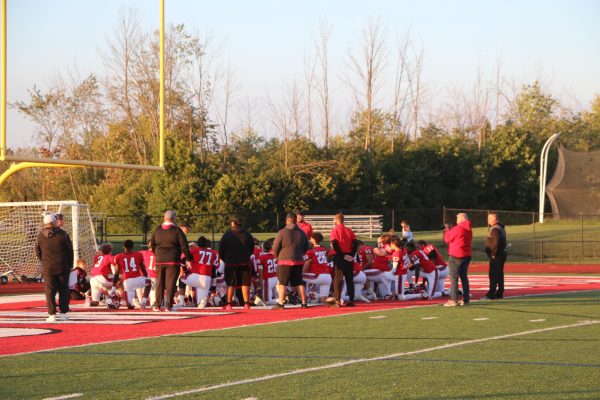
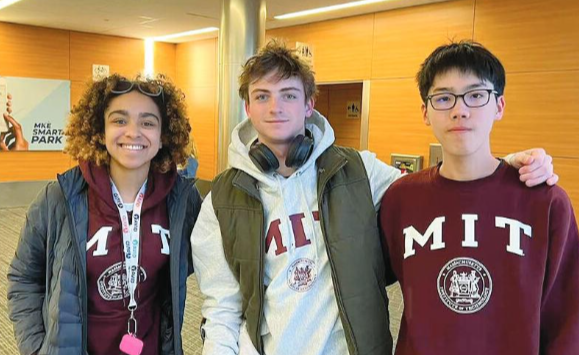
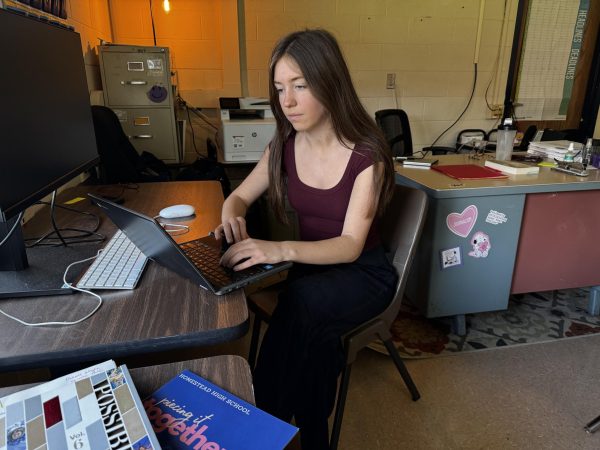
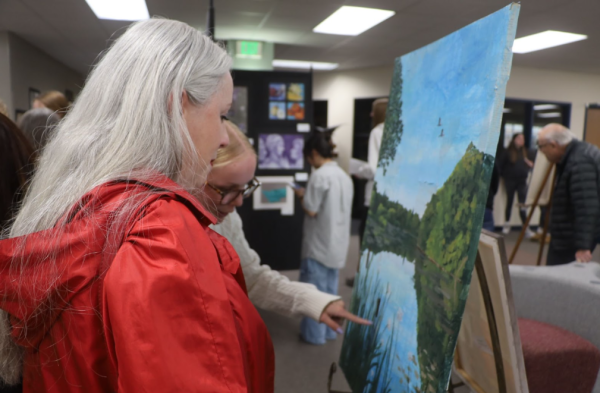
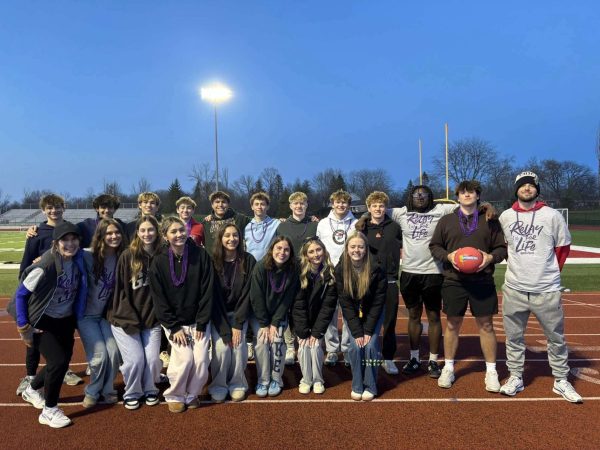
Barbara Nagle RN • Apr 27, 2020 at 7:47 am
Wonderfully informative article. Clearly you have a journalistic gift. So glad I had an opportunity to read.
Mary Avino • Apr 21, 2020 at 5:43 pm
Thanks for the glimpse into the lives and feelings of health care workers during this corona virus pandemic. Great article.